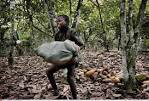Susan Scaffidi Contributing writerIn Nepal, thousands of children — mostly girls — are kidnapped or sold to serve as sex slaves in Indian brothels every year. That’s half a world away, but people in Bakersfield are doing something about it.The organization Global Family is hosting its fourth annual Best of Bakersfield fundraiser this weekend to raise money to battle human trafficking in Nepal, Burma, Bangladesh, India and other nations. Guests will enjoy a gourmet dinner, music, bid on luxury items and all the other activities that normally accompany big-ticket fundraisers.
The glitzy event doesn’t mask the harsh realities of the global trafficking industry, which victimizes women and children in every part of the world. Global Family is one of a thousand or more agencies created to combat the crime, and also to rescue and restore the victims. Global Family executive director Jennifer Jensen said the organization’s work started 20 years ago, when her husband Clark, a cultural anthropologist, was traveling through India and was asked by members of a village if he wanted to take the boy they “owned.”
“Basically, he’d been sold by his parents to be a slave in this village and they wanted to get rid of him because he was getting into trouble,” Jensen said.
Jensen said the family moved to Katmandu, Nepal’s capital city, where they learned that many girls were trafficked across the border into India as sex slaves. “Our own daughter being 13 — we wanted to be on the prevention side,” Jensen said.
What they learned convinced the Jensens that effective prevention required a holistic approach to the problem, so they created a program they call the “Daughter Project,” emphasizing three main areas: prevention, intervention and shelter.
Prevention efforts include broad-based education and awareness programs, including advertising campaigns, forming government and community partnerships, even educating children to look out for one another.
“We want (children) to notice when girls stop coming to school and notify teachers,” Jensen said.
Intervention efforts include monitoring and checkpoints at highways, bus stops and transportation hubs, advocacy for enforcing laws and victims’ rights, and coordinating rescue networks of individuals and organizations.
What Jensen feels is the best remedy is the way they approach sheltering rescued children — family care.
“We help intact families live in more stable environments,” Jensen said.
“Even if their parents are poor, we still think it’s better for a child to be with his or her parents,” Jensen said.
Although the Jensens are based in Bakersfield, Jennifer makes regular trips to Nepal, India and Burma, working with organizations and community groups to raise awareness, provide rescue training, and make the case for family care by demonstrating successes from other areas.
“It’s very difficult to find anyone else who does family care,” Jensen said. “They all put (the children) in orphanages and institutions.”
Jensen said by her organization adapted US foster care techniques to provide intact families to those children who have lost their families or can’t be returned to their families. That can include a single family, or even group homes, plus homes for victims with special needs.
Jensen said the most important thing of all is to teach girls — victims and potential victims — to see their inner beauty. “We help girls realize their worth,” Jensen said. “To help them realize they are just as valuable as their brothers or the boy next door.”
Jensen said the Best of Bakersfield event is Global Family’s biggest fundraiser, raising $110,000 last year. All of the money goes to the prevention, intervention and the maintenance of six shelters along the Nepal-India border; none to administrative costs.
(Source: The Bakersfield Californian via Google News)




